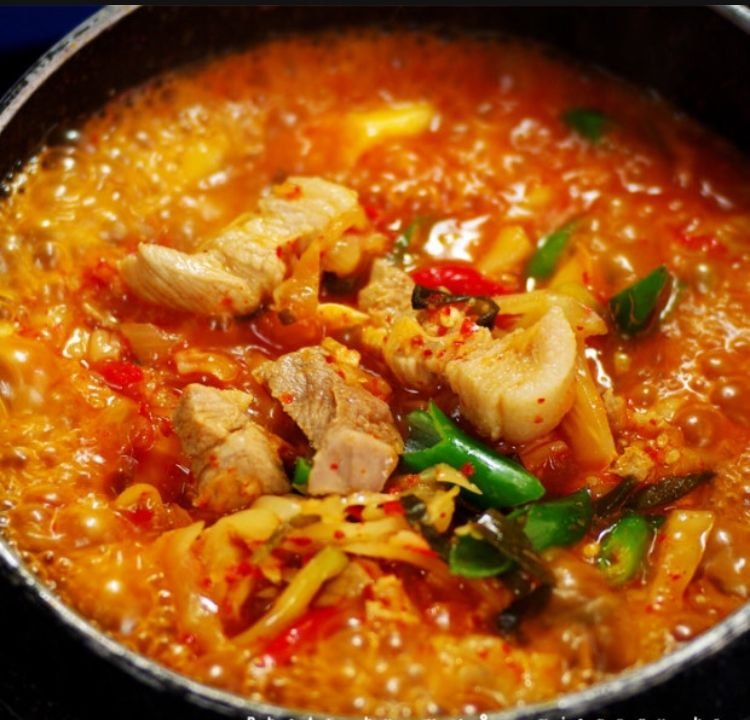
One of the most beloved lunch menu for Korean office workers is kimchi-jjigae. It is a safe choice at anyrestaurant, never disappoints, and is always served in generous portions. The same is true at home. All youneed is sour, fully-ripe kimchi and water. Pork and anchovies are the two most favorite ingredients added toenhance the flavor of kimchi-jjigae.Along with kimchi fried rice, Kimchi-jjigae is one of the best ways to use up sour kimchi. Even a smalladdition of pork, tuna, mackerel or anchovies neutralizes the sourness of kimchi, and tastes unbelievablygood with rice. Recently, Mugeunji, or aged Kimchi, has been gaining popularity. When Kimchi is maturedat low temperatures for over six months, it becomes Mugeunji, which is less sour and sports a strongerfermented flavor. Boiling Mugeunji with large chunks of pork or a generous portion of mackerel or mackerelpike turns it into a 'rice thief', because the resulting Jjigae is so delicious that rice literally seems to disappearin plain sight. Adding soybean paste or Gochujang to Dongchimi(radish water kimchi), Kkakdugi(dicedradish kimchi) or leftover kimchi will intensify the flavor, while adding pork chunks or pork ribs instead ofanchovies results in a nutritious and hearty dish suited for winter.